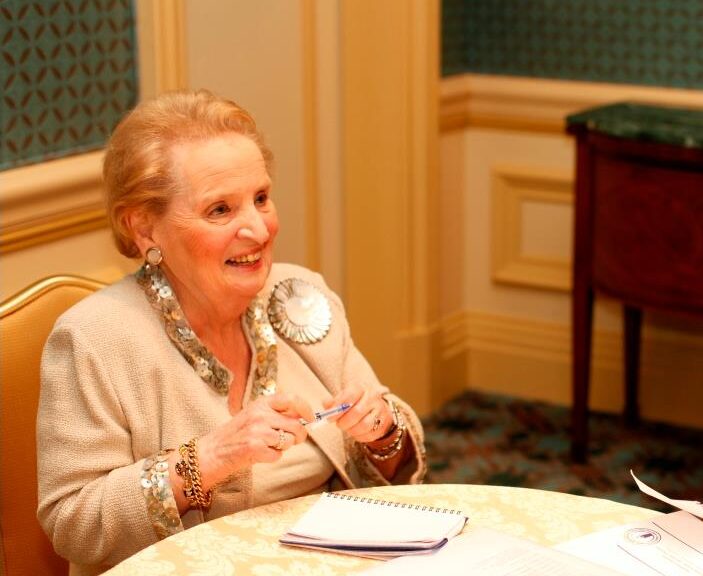The diversity movement has raised myriad issues regarding language and the exercise of speech. Indeed, some critics of diversity efforts have accused its advocates of undermining the U.S. tradition of free speech. Yet that argument is ill-founded, for two reasons. First, because totally “free” speech does not exist in the United States. Second, because establishing selective legal limits on speech is as historically American as apple pie.
This is the fifth in a series of columns based on my research as a past fellow of the University of California National Center for Free Speech and Civic Engagement. In earlier columns I argued that diversity advocates should not be drawn into the position of opposing free speech, because it does not really exist. Rather they should clarify and reframe the issue.
Continue reading Diversity and Speech Part 5: Interculturalism – by Carlos E. Cortés

 Former Southern Cameroon (Northwest & Southwest regions of Cameroon) is considered a minority group in Cameroon. Approximately 20% of the population (5 Million) of Cameroon are from and reside in these two English-speaking regions. This minority population has been marginalized both in public institutions and state positions. The feeling of marginalization started developing and growing among the anglophone population, when the 1961 Federal Constitution was changed by President Ahidjo in 1972; changing the status of Cameroon from the Federal Republic, to the United Republic of Cameroon. The sentiment started to develop among the anglophone population that the francophone population was better represented politically, economically and socially. This fueled claims of self-determination within the Anglophone population. (ICG 02/08/2017).
Former Southern Cameroon (Northwest & Southwest regions of Cameroon) is considered a minority group in Cameroon. Approximately 20% of the population (5 Million) of Cameroon are from and reside in these two English-speaking regions. This minority population has been marginalized both in public institutions and state positions. The feeling of marginalization started developing and growing among the anglophone population, when the 1961 Federal Constitution was changed by President Ahidjo in 1972; changing the status of Cameroon from the Federal Republic, to the United Republic of Cameroon. The sentiment started to develop among the anglophone population that the francophone population was better represented politically, economically and socially. This fueled claims of self-determination within the Anglophone population. (ICG 02/08/2017). In the 1990s, I made my first trip to Bermuda in fifteen years. My family, once the mainstay of Bermuda Jews, were long gone from the island. The first whiff of salty sea air hasn’t changed but the airport is a jumble of construction. A short jog across the tarmac should end in a hushed wait for the appearance of a customs agent, sitting patiently on the dark wood furniture of the terminal’s old-fashioned waiting room. Today, official greeters wave us through a temporary cordoned maze to a terminal with a second story, a food court, and customs agents encased in glass booths. An electronically-enhanced steel band strikes an earnest rendition of “Island in the Sun” where a portrait of a young Queen Elizabeth once hung.
In the 1990s, I made my first trip to Bermuda in fifteen years. My family, once the mainstay of Bermuda Jews, were long gone from the island. The first whiff of salty sea air hasn’t changed but the airport is a jumble of construction. A short jog across the tarmac should end in a hushed wait for the appearance of a customs agent, sitting patiently on the dark wood furniture of the terminal’s old-fashioned waiting room. Today, official greeters wave us through a temporary cordoned maze to a terminal with a second story, a food court, and customs agents encased in glass booths. An electronically-enhanced steel band strikes an earnest rendition of “Island in the Sun” where a portrait of a young Queen Elizabeth once hung.
 The first day of the year in the lunar calendar is to many Chinese, Koreans, and Vietnamese who live outside their home countries, the most important festival of the new year that they celebrate. Other Asian ethnic groups may join the festivity in their neighborhoods even though they observe their owe New Year days. For example, the Thais honor their Songkran (Water Festival) in April or the Gujaratis celebrate theirs the day before the Asian Indian Diwali (the Festival of Lights) in late October or early November. As for the Japanese and Filipinos, they choose to observe the Gregorian New Year. With this festive day around the corner, let’s look at some of the New Year traditions of Chinese, Koreans, and Vietnamese.
The first day of the year in the lunar calendar is to many Chinese, Koreans, and Vietnamese who live outside their home countries, the most important festival of the new year that they celebrate. Other Asian ethnic groups may join the festivity in their neighborhoods even though they observe their owe New Year days. For example, the Thais honor their Songkran (Water Festival) in April or the Gujaratis celebrate theirs the day before the Asian Indian Diwali (the Festival of Lights) in late October or early November. As for the Japanese and Filipinos, they choose to observe the Gregorian New Year. With this festive day around the corner, let’s look at some of the New Year traditions of Chinese, Koreans, and Vietnamese.